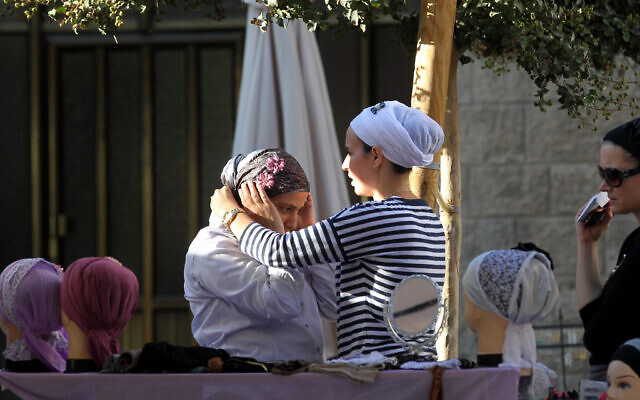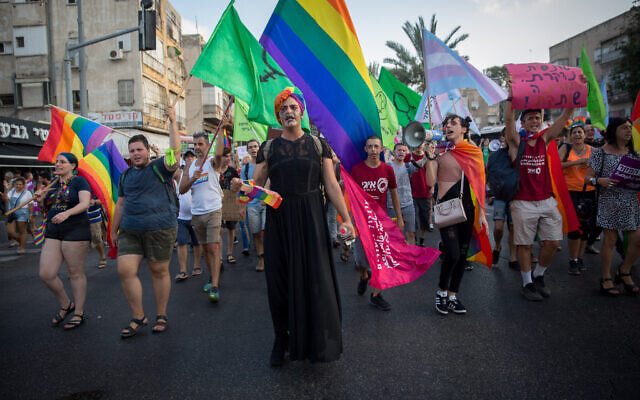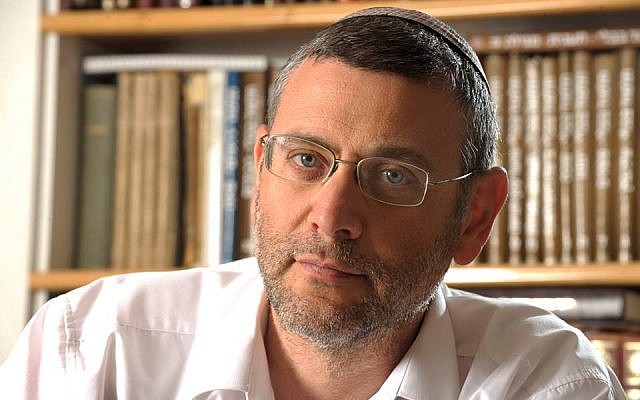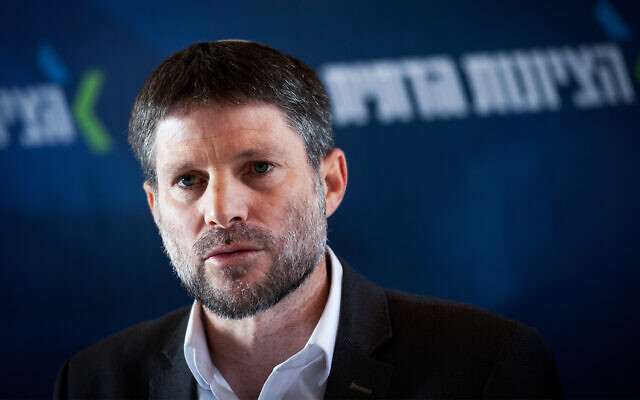AFP – Yael Rushlin holds on to her Jewish practices, but as a transgender woman in Israel, she struggles to find acceptance in her Orthodox community – a feeling resented by the country’s new right-wing government.
Along with her partner, Rashlin is busy wrestling with piles of clothes and toys that have been strewn around by her children, ahead of the Sabbath day of rest.
“I can no longer pray to the same God as the people who are trying to destroy my community and destroy our lives today,” she said, referring to the anti-LGBTQ agenda pushed by some cabinet members.
She has undergone a social transformation, which includes changing her first name and dress.
But unlike other conservative women, she recently decided to stop covering her hair as a way of distancing herself from the community.
“Religious (heterosexual) couples can walk down the street holding hands, but if I’m wearing my headscarf, I can’t hold another woman’s hand because it raises questions,” she said.
Rashlin, a 43-year-old computer engineer, stopped wearing her dupatta a few months ago because she was bothered by the looks and comments from people in her community.

Orthodox Jewish women try on a head covering, traditionally worn by married religious Jewish women, in Jerusalem’s Old City September 07, 2012. (Nati Shohat / Flash90)
Israel has one of the most progressive LGBTQ laws in the Middle East and in the past decade there has been more openness about same-sex relationships, even among religious people.
But discussion about gender identity remains taboo in the conservative community, and unease among LGBTQ people has grown since the government came to power in late December.
Rashlin and his wife Hadar had a wedding ceremony in Israel a few years ago that was not recognized by the religious authorities and the state.
Same-sex marriages are prohibited in Israel, which instead legally recognizes such unions abroad.
“The price to be paid for managing this conflict between being an LGBTQ couple and being part of a conservative community has become too heavy,” said Haider Rushlin, 30.
Yael Rushlin has five children, including three from a previous marriage before transitioning.
suicide risk
“There is a fear among rabbinical authorities to say that transgender (people) exist, it is not a disease or a fad,” she said.

Members and supporters of the LGBT community take part in a protest march in support of the transgender community in Tel Aviv on July 22, 2018. (Miriam Ulster/Flash90)
Several of her transgender friends have killed themselves in recent years. Across Israel, 40 percent of the transgender community has attempted suicide, according to a 2020 report by the Ministry of Health.
According to Rotem Sorek, head of the Mavrim association that supports transgender people, the figure is even higher among the Orthodox community.
“Their crisis is even greater. They often face rejection not only from their loved ones but also from their community. And so, they are at even greater risk,” she said.
The situation is particularly worrying for Benny Lau, an Orthodox rabbi who has for years supported gay Jews and occasionally confronted transgender people.
Lau said, “Every human being has an obligation to try and help another human being live.”
“When you play the role of a rabbi, a leader, you must take care of every person’s life,” he continued, stressing that the most important duty in Jewish law is to protect life.
“There are many religions and Torah disciples who react either with fear or with deep objection to this whole phenomenon of transgenders.”

Rabbi Benny Lau. (Etiquette)
Lau recalled writing a letter for a transgender woman to confirm her identity so that she would be accepted into the women’s section of her synagogue, as houses of worship are segregated in Orthodox communities.
Lau states that most rabbis’ hostility towards transgender identity is part of their broader fight against modernity, instead upholding Jewish law which is “subject to interpretation and in which many justifications for different identities can be found”.
enmity with top ministers
Lau’s moderate outlook contrasts with the positions held by some newly elected Israeli lawmakers, especially those within the government that took office in December.
Finance Minister Bezalel Smotrich and fellow coalition member Avi Maoz, a deputy minister in the premier’s office, have both expressed strongly anti-LGBTQ views.

Finance Minister and head of the Religious Zionist Party Bezalel Smotrich leads a faction meeting in the Jewish settlement of Givat Harel in the West Bank on February 14, 2023. (Saraya Diamant / Flash90)
Shani Armon, another Orthodox transgender woman, said: “I don’t think there will be anti-LGBTQ laws immediately, but more than the laws, I’m concerned about the daily work of the government.”
A computer engineer, the 29-year-old feared a “budget shortfall for centers that help LGBTQ”.
In considering the new alliance, Yael Rushlin said that he “has considered leaving Israel if the situation becomes truly impossible.”
“Why is it really so hard?” He asked about his community’s inability to accept his identity.
“Why are we considered a bone in the neck?”
